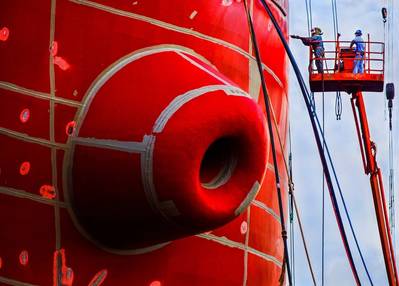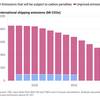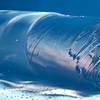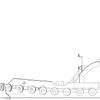Performance Shipping Orders Two LR2 Tankers
Greek shipowner Performance Shipping Inc. announced it has signed two shipbuilding contracts with China Shipbuilding Trading Co. Ltd. (CSTC) and Shanghai Waigaoqiao Shipbuilding Co. Ltd. (SWS) for the construction of two 114,000 DWT LNG-ready LR2 Aframax product/crude oil tanker vessels.
The newbuilds, expected to be delivered in January and April of 2026, were ordered at a purchase price of US$64,845,000 per vessel, net of third-party commission. 15% of the purchase price is payable upon receipt of a refund guarantee; 10% of the purchase price is payable at each of the milestones of steel cutting, keel laying, and launching of the vessels, and the remaining 55% of the purchase price is payable upon the delivery of the vessels.
The vessels will be equipped with electronic main engines with high-pressure selective catalytic reactors (HPSCR) for Tier III (NOx Emissions) compliance, exhaust gas cleaning systems (EGCS – commonly referred to as scrubbers) for Tier II (NOx Emissions) compliance, and ballast water treatment systems (BWTS).
Andreas Michalopoulos, Performance Shipping’s chief executive officer, said, “These shipbuilding contracts supplement the previous contract we entered into with SWS in March 2023 for a Tier III product/crude oil carrier scheduled for delivery around October 2025. The construction of these LNG-ready LR2 oil tankers, equipped with the latest high-specification engines and meeting stringent emission requirements, along with scrubbers and water ballast treatment systems, will take place at the largest and most reputable state-owned shipyard in China. Following the sale of our oldest, 2007 built, Aframax tankers, M/T P. Fos in October 2022 and M/T P. Kikuma in November 2023, the company is now poised to take delivery of three identical “sister” vessels in late 2025 through early 2026. These sales and acquisitions constitute our core fleet expansion and renewal strategy. We believe that tanker fleet growth will reach historical lows in the coming years and maintaining a modern fleet among an aging global fleet during periods of high seaborne trade demand will result in sustainably strong fundamentals and higher asset values.”













